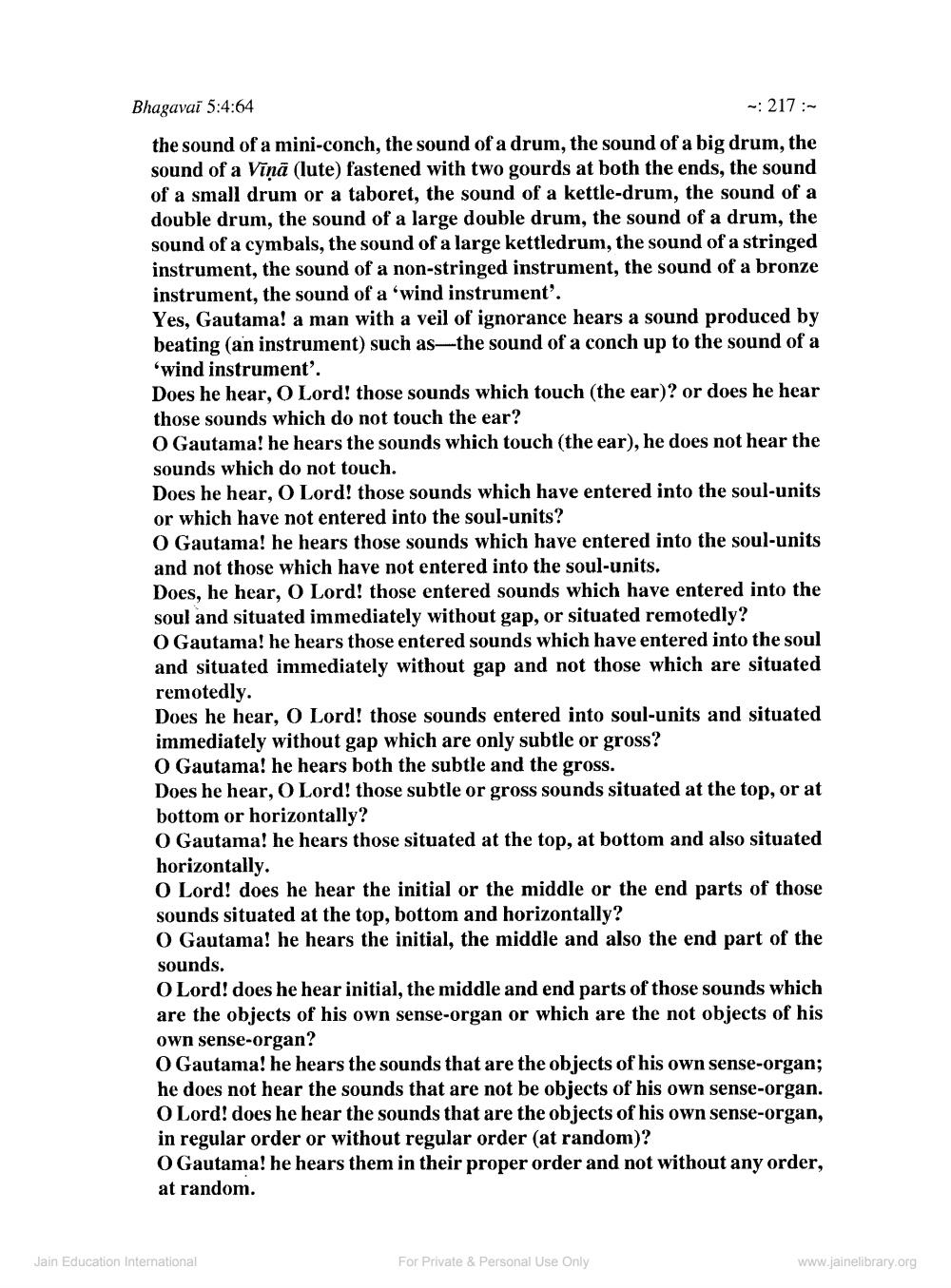________________
Bhagavai 5:4:64
- 217 :the sound of a mini-conch, the sound of a drum, the sound of a big drum, the sound of a Vīņā (lute) fastened with two gourds at both the ends, the sound of a small drum or a taboret, the sound of a kettle-drum, the sound of a double drum, the sound of a large double drum, the sound of a drum, the sound of a cymbals, the sound of a large kettledrum, the sound of a stringed instrument, the sound of a non-stringed instrument, the sound of a bronze instrument, the sound of a wind instrument'. Yes, Gautama! a man with a veil of ignorance hears a sound produced by beating an instrument) such as the sound of a conch up to the sound of a 'wind instrument'. Does he hear, O Lord! those sounds which touch (the ear)? or does he hear those sounds which do not touch the ear? O Gautama! he hears the sounds which touch (the ear), he does not hear the sounds which do not touch. Does he hear, O Lord! those sounds which have entered into the soul-units or which have not entered into the soul-units? O Gautama! he hears those sounds which have entered into the soul-units and not those which have not entered into the soul-units. Does, he hear, O Lord! those entered sounds which have entered into the soul and situated immediately without gap, or situated remotedly? O Gautama! he hears those entered sounds which have entered into the soul and situated immediately without gap and not those which are situated remotedly. Does he hear, O Lord! those sounds entered into soul-units and situated immediately without gap which are only subtle or gross? O Gautama! he hears both the subtle and the gross. Does he hear, O Lord! those subtle or gross sounds situated at the top, or at bottom or horizontally? O Gautama! he hears those situated at the top, at bottom and also situated horizontally. O Lord! does he hear the initial or the middle or the end parts of those sounds situated at the top, bottom and horizontally? O Gautama! he hears the initial, the middle and also the end part of the sounds. O Lord! does he hear initial, the middle and end parts of those sounds which are the objects of his own sense-organ or which are the not objects of his own sense-organ? O Gautama! he hears the sounds that are the objects of his own sense-organ; he does not hear the sounds that are not be objects of his own sense-organ. O Lord! does he hear the sounds that are the objects of his own sense-organ, in regular order or without regular order (at random)? O Gautama! he hears them in their proper order and not without any order, at random.
Jain Education International
For Private & Personal Use Only
www.jainelibrary.org




